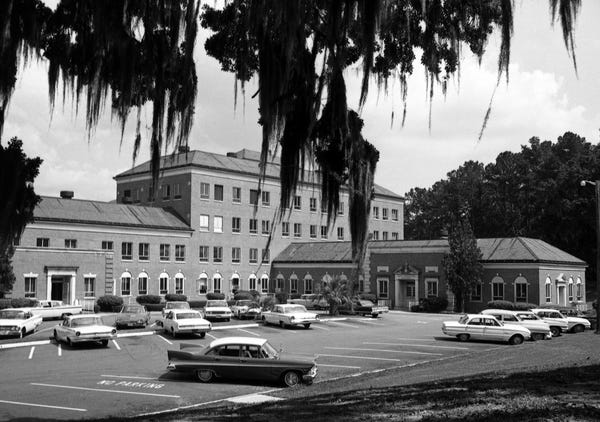This evening, the Tallahassee City Commission will consider a proposal that would merge Tallahassee Memorial Hospital with the Florida State University College of Medicine system.
As I have written and spoken about many times, I harbor GRAVE concerns about the future of Florida A&M’s prominent Allied Health, Nursing, and Pharmacy programs with the rise and expansion of the Florida State University College of Medicine. As a fourth generation Tallahassee native who is descended from three generations who lived under rigid Jim Crow segregation in this city, I learned very early on about the systemic inequalities that led to the closing of the FAMU Hospital (1911-1971), persistent proposals to phase FAMU out through merger with FSU during that same era, and the dog whistles that still echo to this day among some state education leaders who raise the possibility of moving programs to FSU or UCF (FAMU Law School) any time any issue arises that is not to their personal or ideological liking.

FAMU Hospital circa 1950’s
Lest we forget that FAMU has a deep historic legacy in healthcare delivery and training in the Tallahassee region—and that legacy must be honored in any new academic health center partnership. While the proposed FSU–TMH agreement presents historic opportunities, it is also fraught with the risk that the same Black community that has consistently seen its landmarks, homes, schools, and Hospital disappear in the name of integration and growth, could once again find FAMU on the sidelines unless specific safeguards are embedded.
To be clear, FAMU, under the leadership of new President Marva Johnson and Board of Trustees Chair Deveron Gibbons, shouldn’t be compelled to beg for one seat at the table when in reality, the minute a partnership of this nature first sprang to mind, FSU and TMH should have reached out in the spirit of collegiality and camaraderie to ensure that financial equity, student/training guarantees, research integration, and community-clinic leadership are fully secured for both universities. That lack of initial transparency, which should have been coupled with a clear delineation of what FAMU’s fiscal and administrative roles should be moving forward, is precisely why so many FAMU stakeholders continue to question what FSU’s true angle is on this Hospital merger issue. And with news reports that at least one prominent voice, Tallahassee Pastor R.B. Holmes, is seeking to have the deal quickly ratified today despite questions from stakeholders and advocacy groups like the NAACP, I cannot help but wonder “why the rush” and urge caution on an issue that could have generational ramifications?
From my perspective, I have always sensed that FSU stakeholders covet everything that its sports rival, the University of Florida, has as far as academic programs and services such as a medical school, nursing school, pharmacy school, and the Shands Medical Complex–programs and facilities that to date, FSU lacks because they are at FAMU or, in the case of TMH, they have yet to submit to FSU’s governance. Perhaps I’m wrong, but everything in my spirit tells me my assessment on this is quite right!
Ergo, the above facts, coupled with the significant number of Black people who live in the Greater Tallahassee area who need critical medical services that TMH provides as the region’s largest comprehensive hospital, demands that the one institution that has ALWAYS advocated for Black people and other racial minority interests in Florida, FAMU, has seats (plural) at the table that are filled by individuals who know all about the past, are cognizant of the political realities of the present, and will stand resolved to fight for minority populations who could suffer from the hyper politicization that has taken over Florida’s State University System!
To that end, I IMPLORE my friends on the Tallahassee City Commission to hold the line UNLESS and UNTIL FAMU is fully (and equitably) represented in any proposed TMH-FSU merger.

